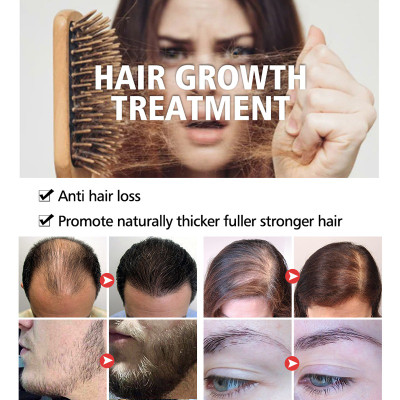The Ultimate Guide to Natural Hair Density: Unlock the Secrets to Thicker and Healthier Hair
PURE KERATIN on 13th Jun 2023
Are you tired of thin, lackluster hair that refuses to grow? Do you dream of having luscious, voluminous locks that turn heads wherever you go? Look no further! In this comprehensive guide, we will delve deep into the topic of natural hair density and provide you with all the information you need to transform your hair into a crowning glory.
Natural Hair Density: Understanding the Basics
What is Natural Hair Density?
Natural hair density refers to the number of individual hair strands present on your scalp. It determines the overall thickness and volume of your hair. Understanding your natural hair density is crucial as it sets the foundation for any hair care routine or styling technique you choose.
How is Natural Hair Density Measured?
Measuring natural hair density involves counting the number of hair strands within a defined area on the scalp. The most common unit of measurement is the number of hair follicles per square inch or centimeter. Hair density can range from low to high, with variations in between.
The Role of Genetics in Natural Hair Density
Genetics plays a significant role in determining your natural hair density. It is largely influenced by your parents' genetic makeup, which determines factors such as hair follicle size, shape, and distribution. While you cannot change your genetic predisposition, understanding it can help you manage and enhance your hair density effectively.
Factors Affecting Natural Hair Density
1. Age
As we age, the hair density naturally decreases. The rate of hair growth slows down, and hair follicles may become dormant or cease to produce new hair altogether. Understanding the impact of age on natural hair density allows you to adopt appropriate strategies to maintain healthy hair as you grow older.
2. Hormonal Changes
Hormonal changes, such as those occurring during puberty, pregnancy, or menopause, can affect natural hair density. Hormonal imbalances can lead to temporary or permanent hair loss, thinning, or changes in hair texture. It is essential to address hormonal issues to promote optimal hair growth.
3. Nutritional Deficiencies
A lack of essential nutrients can adversely affect your natural hair density. Nutrients such as vitamins (especially vitamin D and biotin), minerals (iron and zinc), and proteins play a crucial role in maintaining healthy hair growth. A well-balanced diet rich in these nutrients can positively impact your hair density.
4. Environmental Factors
Environmental factors, such as exposure to pollution, excessive sunlight, or harsh chemicals, can weaken hair strands and hinder natural hair density. Taking necessary precautions, such as wearing a hat or using protective hair products, can help minimize the damage caused by environmental stressors.
5. Hair Care Practices
Improper hair care practices can contribute to hair thinning and loss, ultimately affecting natural hair density. Over-styling, excessive heat, tight hairstyles, and harsh chemical treatments can weaken the hair shaft, leading to breakage and decreased density. Adopting a gentle and nurturing hair care routine is essential for maintaining healthy hair density.
Tips to Enhance Natural Hair Density
1. Nourish Your Scalp
A healthy scalp is the foundation for promoting natural hair density. Regularly massage your scalp with nourishing oils, such as coconut oil or castor oil, to stimulate blood circulation and provide essential nutrients to the hair follicles. This helps nourish the scalp and promote optimal hair growth.
2. Choose the Right Hair Care Products
Using suitable hair care products is vital for maintaining natural hair density. Look for products specifically formulated for your hair type and concerns. Avoid harsh sulfates and opt for gentle, sulfate-free shampoos and conditioners that nourish and strengthen the hair follicles without stripping away natural oils.
3. Embrace a Healthy Lifestyle
A healthy lifestyle goes hand in hand with healthy hair density. Ensure you maintain a well-balanced diet, rich in vitamins, minerals, and proteins. Regular exercise promotes blood circulation, delivering essential nutrients to the hair follicles. Hydration is also crucial for optimal hair health, so drink plenty of water throughout the day.
4. Minimize Heat Styling
Excessive heat styling can cause significant damage to your hair, leading to breakage and decreased natural hair density. Minimize the use of heat styling tools like straighteners and curling irons. If you must style your hair using heat, always apply a heat protectant spray to minimize damage.
5. Avoid Tight Hairstyles
Hairstyles that pull tightly on the hair, such as ponytails or braids, can cause tension on the hair shaft, leading to breakage and hair loss. Opt for loose hairstyles or use accessories like scrunchies instead of tight elastic bands to minimize stress on your hair strands.
FAQs About Natural Hair Density
1. Can natural hair density change over time?
Yes, natural hair density can change over time due to various factors such as age, hormonal changes, and lifestyle. It is essential to adapt your hair care routine accordingly to maintain optimal hair density.
2. Can hair care products increase natural hair density?
Hair care products cannot directly increase natural hair density. However, using products that nourish and strengthen the hair follicles can promote healthy hair growth and minimize hair loss, ultimately enhancing the appearance of hair density.
3. Does cutting hair affect natural hair density?
Trimming or cutting the hair does not affect the natural hair density. However, regular trims can help remove split ends and breakage, leading to healthier-looking hair and the illusion of increased density.
4. Are there any natural remedies to enhance hair density?
While there are no magical remedies to instantly increase natural hair density, certain natural ingredients, such as aloe vera, onion juice, or rosemary oil, are believed to promote hair growth and improve hair health. Incorporating these ingredients into your hair care routine may provide some benefits.
5. Can stress affect natural hair density?
Yes, excessive stress can lead to hair loss and thinning, ultimately affecting natural hair density. Practicing stress management techniques, such as meditation, yoga, or engaging in relaxing activities, can help maintain a healthy hair growth cycle.
6. When should I consult a professional about my natural hair density?
If you notice a significant and unexplained change in your natural hair density or experience excessive hair shedding or hair loss, it is advisable to consult a dermatologist or a trichologist. They can evaluate your hair health, diagnose any underlying issues, and provide appropriate treatment recommendations.
Conclusion
Achieving and maintaining natural hair density is a journey that requires patience, care, and the right knowledge. By understanding the basics of natural hair density, identifying factors that affect it, and implementing effective hair care practices, you can unlock the secrets to thicker, healthier hair. Embrace your natural hair texture, nourish your scalp, and make conscious choices to promote optimal hair growth. Remember, your hair is unique and beautiful, and with the right care, it can reach its full potential.



















